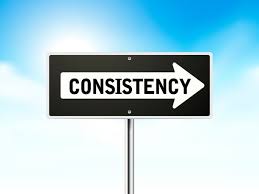Leadership in sales requires adaptability, vision, and the ability to juggle multiple roles seamlessly. Sales leaders are not just managers of targets; they are mentors, managers, and coaches, each role serving a distinct purpose. Understanding when to wear which hat can make the difference between a struggling team and a high-performing one.
1. The Mentor: Sharing Wisdom and Long-Term Growth
A mentor acts as a trusted advisor, focusing on long-term career growth rather than immediate goals. Mentoring is most effective during the early stages of a team member’s career, as it helps build foundational skills and confidence. It is also invaluable when someone seeks guidance for career advancement or faces recurring challenges. To mentor effectively, sales leaders must discuss overarching goals, offer accessibility for open discussions, and encourage self-reflection to help team members grow independently. As highlighted in Harvard Business Review article, mentorship is a powerful which fosters employee loyalty and aligns individual aspirations with organizational objectives, strengthening team cohesion and trust.
2. The Manager: Driving Accountability and Results
Management ensures operational discipline, accountability, and alignment with organizational targets. This role is crucial during routine activities such as pipeline reviews, when addressing underperformance, or ensuring compliance with established processes. Effective management begins with setting clear expectations, monitoring progress through tools like CRM dashboards, and delivering constructive feedback that focuses on improvement without demoralizing the team.
3. The Coach: Building Skills and Confidence
Coaching emphasizes skill development, confidence-building, and empowering team members to solve challenges independently. This role is ideal when specific skills need enhancement, such as objection handling or negotiation, or when real-time feedback opportunities arise, like after a sales call. Effective coaching involves asking open-ended questions to help the individual discover solutions, using roleplay to practice handling scenarios, and celebrating small wins to reinforce positive behaviors. As noted by McKinsey & Company research, organizations that embrace a coaching culture see 28% higher revenue growth than those that neglect it, proving the tangible value of this approach.
How to Decide Which Hat to Wear
Deciding whether to mentor, manage, or coach depends on the individual, the objective, and the situation. A junior salesperson may benefit from mentorship to build a career foundation, while a seasoned team member might need coaching to refine specific skills. When focusing on long-term growth, mentoring is the answer; when addressing immediate results or process adherence, management is key. Coaching is best suited for skill enhancement or confidence-building moments. Great leaders remain flexible, often switching roles mid-conversation, such as beginning with management during a performance review and transitioning to coaching to explore solutions.
In conclusion, the true mark of an exceptional sales leader lies in the ability to seamlessly transition between the roles of mentor, manager, and coach. Each role addresses a unique aspect of team development, from nurturing long-term growth to driving accountability and refining skills. By understanding the individual needs of their team members and the demands of each situation, leaders can foster a culture of trust, discipline, and continuous improvement. As organizations increasingly recognize the value of leadership versatility, the ability to wear the right hat at the right time becomes a pivotal skill that not only boosts team performance but also strengthens organizational success. Leadership in sales, after all, is not about choosing one role but mastering the art of blending them effectively.
Interested in more? Explore our PROGRAMMES DE FORMATION À LA VENTE.
Let’s connect and discuss how we can help transform your team’s sales results.
Optimé International | Recognized as a Top Sales Training Company (2024) by Selling Power Magazine



